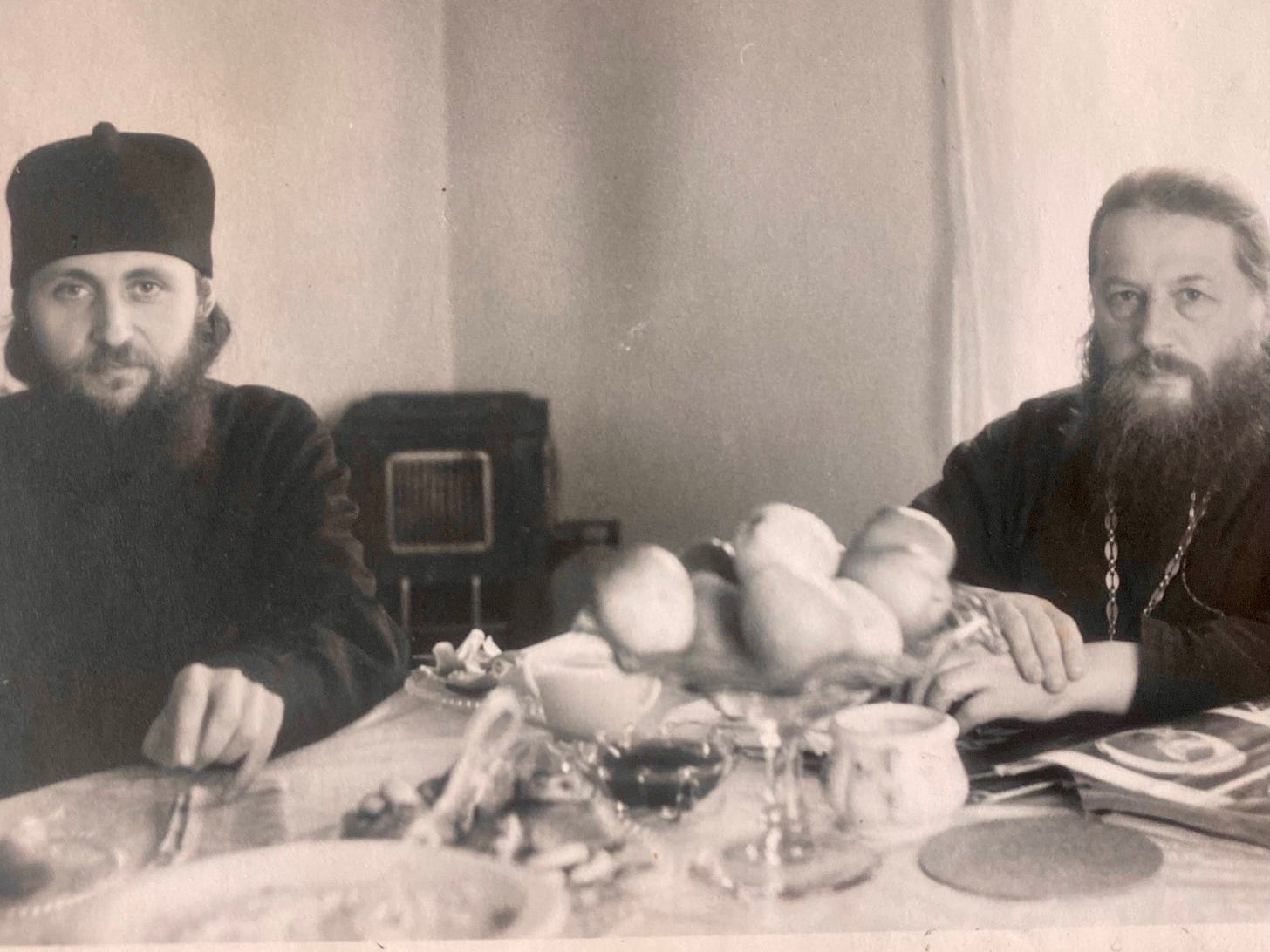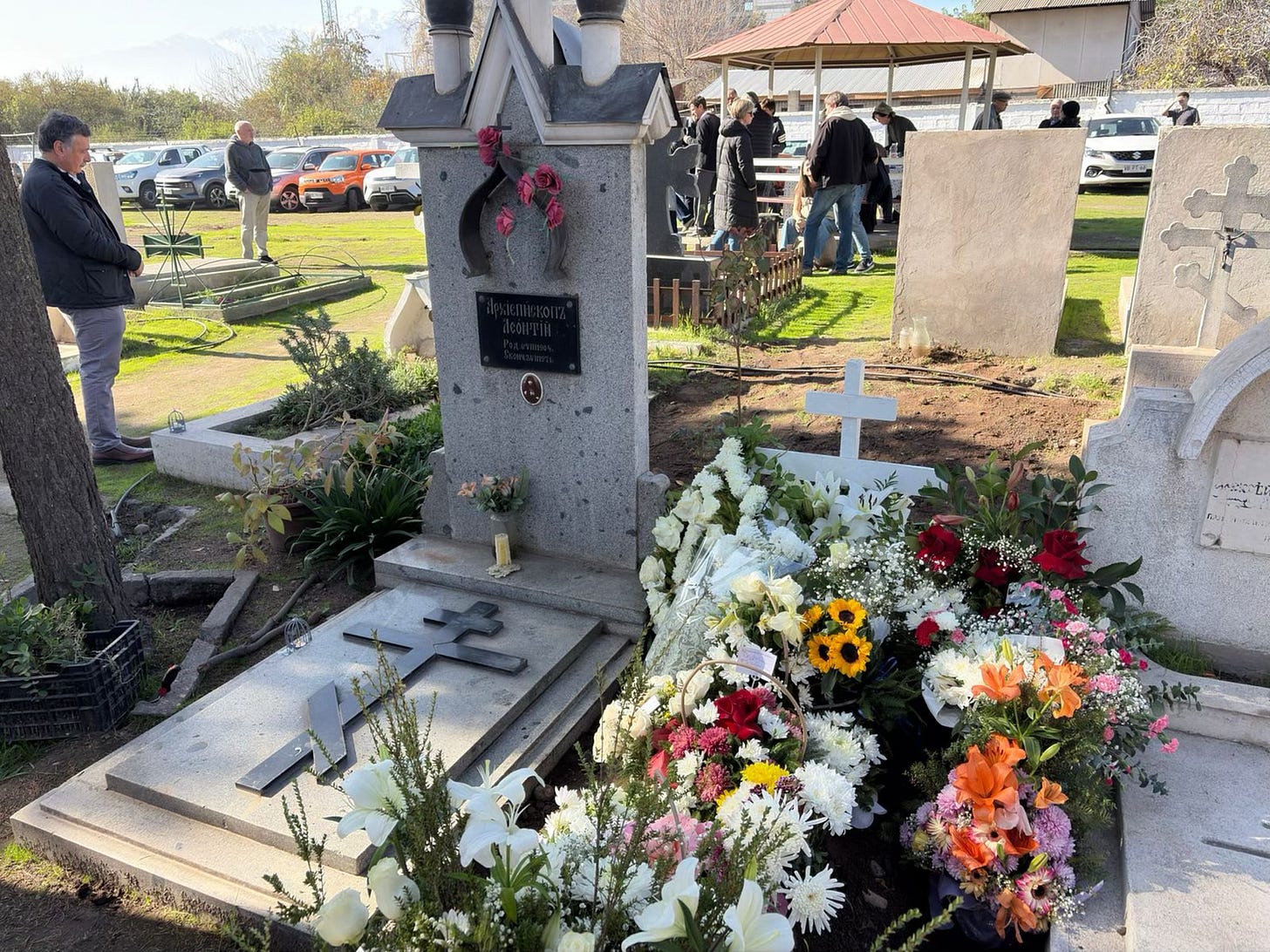Leontii Filippovich, Archbishop of Chile (1904–1971): A Case Study in Russian Orthodox Non-Conformity
July 1, 2025
Archbishop Leontii of Chile and Peru passed away on this day in 1971. His life and legacy remain deeply woven into the complex tapestry of twentieth-century Russian Orthodox history. For me personally, his story was the beginning of a lifelong engagement with the non-conformist strand of Orthodoxy—and with the deeper meaning of ecclesiastical communion in the Byzantine tradition.
When I arrived from the USSR to Holy Trinity Seminary in Jordanville in 1990, I was immediately drawn to everything connected with the Catacomb Church and the broader anti-Sergianist movement. That’s when I came across the July–August 1981 issue of The Orthodox Word, which featured an article titled “Archbishop Leonty of Chile: Confessor of Heartfelt Orthodoxy.” It made a deep impression. The connection it suggested between the Catacomb Church and the Russian Church Abroad was both powerful and largely unexamined. Inspired, I decided to write a short piece on Archbishop Leontii for Pravoslavnaia Rus’, the seminary’s Russian-language journal, to mark the twentieth anniversary of his repose.
That small article soon grew into something larger. As new materials arrived, the project expanded into my bachelor’s thesis in theology. Archbishop Laurus, then Editor-in-Chief of Pravoslavnaia Rus’, served as my academic supervisor. The late Larisa Ivanovna Litwinowicz—librarian and daughter of Metropolitan Hilarion (Ohienko) of Winnipeg—taught me how to format a proper scholarly paper. The final result was serialized in the March–May 1996 issues of Pravoslavnaia Zhizn’, a monthly supplement to Pravoslavnaia Rus’.
Still, the research didn’t stop. Unfortunately, my lack of planning meant I kept collecting material without ever fully beginning writing the biography. In 1999 I traveled on foot through Argentina, Chile, and Paraguay, tracking down traces of Vladyka’s life—but the book never quite materialized. Then I got married in 2003, and the pressure to make ends meet didn’t exactly help with long-term writing projects. Ironically, the now well-established website Historical Studies of the Russian Church Abroad began as an attempt to raise funds for the Leontii biography.
I haven’t given up. In fact, I hope this summer to launch a non-profit that will help me finally complete several long-shelved projects—including this one.
Why does Archbishop Leontii matter?
Born in 1904, Leontii entered the Kiev Caves Lavra as a novice at just eighteen.1 He belonged to the last generation of Russian churchmen formed before the Revolution. He never received a formal theological education—an omission that is itself telling when we consider the trajectory of the Russian Church in the postwar diaspora. During World War II, he joined the emigration and took up the struggle for Orthodoxy abroad.
Vladyka Leontii saw the world in sharp binaries: true vs. false, right vs. wrong, Church vs. apostasy. This black-and-white worldview brought him into frequent conflict, including with Metropolitan Anastassy, the second First Hierarch of the Russian Orthodox Church Outside of Russia. Yet he often found an ally in another hierarch: St. John of Shanghai and San Francisco. Vladyka Leontii’s principled intransigence left a lasting impression—especially on the American convert Eugene Rose and his co-struggler Gleb Podmoshensky, who went on to found the “Independent Orthodox Workers,” a California-based experiment in Orthodox communal living that eventually evolved into the St. Herman of Alaska Brotherhood.His legacy also lives on in those who followed him.
Just a few weeks ago, on June 8, Archimandrite Benjamin (Vozniuk) reposed in Chile at nearly 98 years old. He was likely the oldest clergyman in the entire Russian Orthodox Church. Vladyka Leontii, then Bishop of Berdichev, ordained him a deacon at the age of seventeen in wartime Ukraine. Their bond was like that of St. Gerasimos and his lion: Fr. Benjamin followed Vladyka into exile, first to Vienna, then to the remote corner of Paraguay and finally to Chile, where his care likely helped extend the bishop’s life.
Archimandrite Benjamin, on the left, and Archbishop Leonty
Fr. Benjamin once traveled by bus from Santiago to attend the 1974 Council in Jordanville. He declined episcopal consecration for ROCOR’s smallest diocese, but served faithfully as its administrator for years. In later life, he ceased commemorating Metropolitan Laurus. When he died, he was buried without clergy present—a stark, perhaps lonely end, but consistent with the integrity of his conscience.
Fr. Benjamin in Holy Trinity Monastery in Jordanville in 1974
I last spoke with him around 2021. I asked Metropolitan Hilarion (Kapral) if he had any message I could pass along. Vladyka smiled and said, “Ask about his health.” Then, after a pause, added with characteristic charity: “The Lord will have mercy on him—for his zeal, though not always according to knowledge.”
Flowers cover Fr. Benjamin’s grave; Archbishop Leontii’s grave is visible to the left.
No one deserves to be patronized—not Fr. Benjamin, and not Archbishop Leontii. They may not have been easy men, but they were faithful. Archbishop Leontii was an ascetic figure, a co-struggler with St. John, and—remarkably—he died on the same day as Vladyka John, five years later.
For now, I continue to collect and publish materials on Archbishop Leontii on ROCOR Studies. Some are in English; many more are in Russian. The full biography remains unwritten—but, with God’s help, not forever. The ROCOR Studies Institute, which I hope to establish later this year, is intended to support this and other long-standing projects I’ve been working toward.
Footnote
See more in my post here, “The Voice of One Crying in the Wilderness”









“Thy Will be Done”🙏🏻